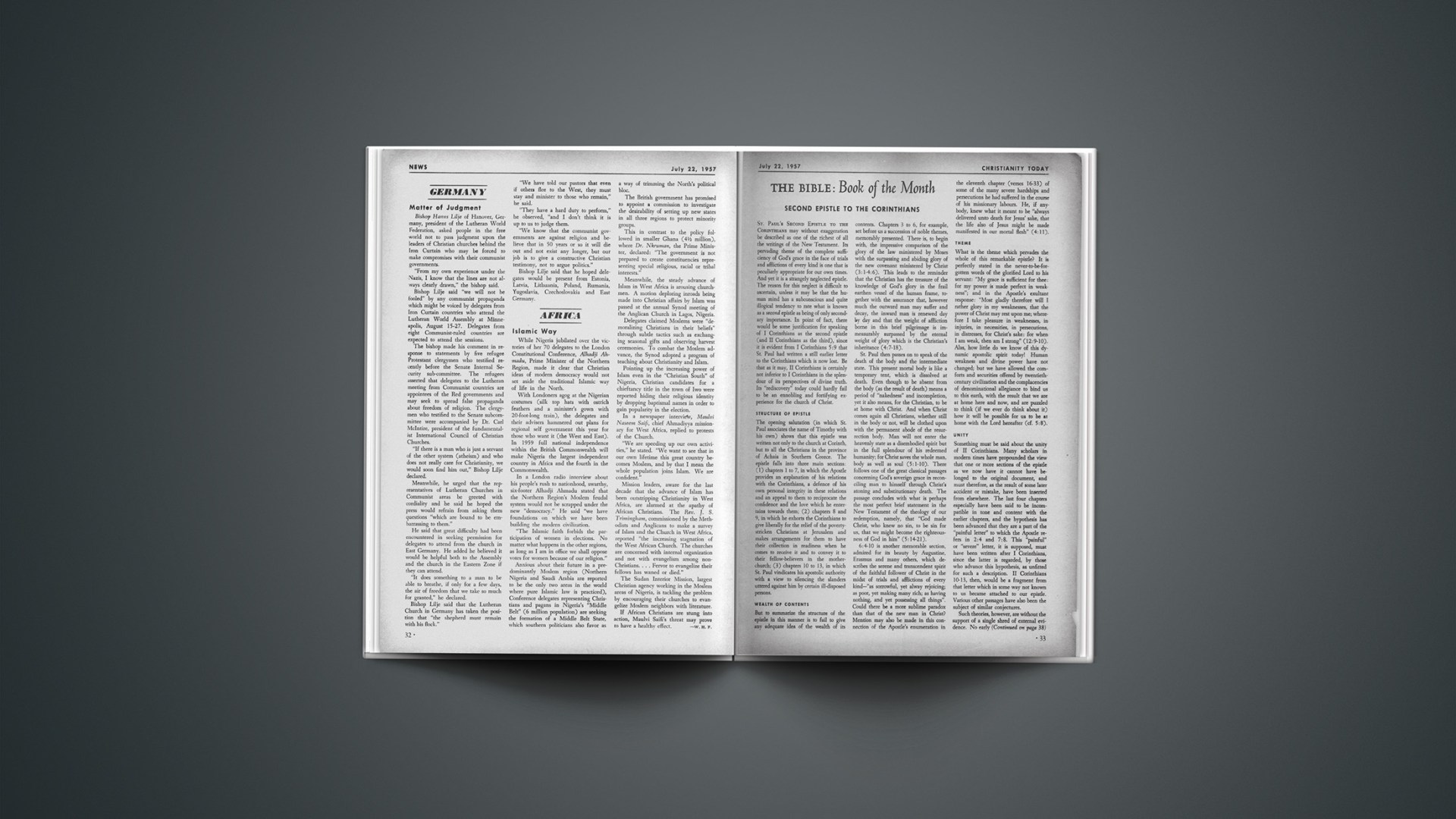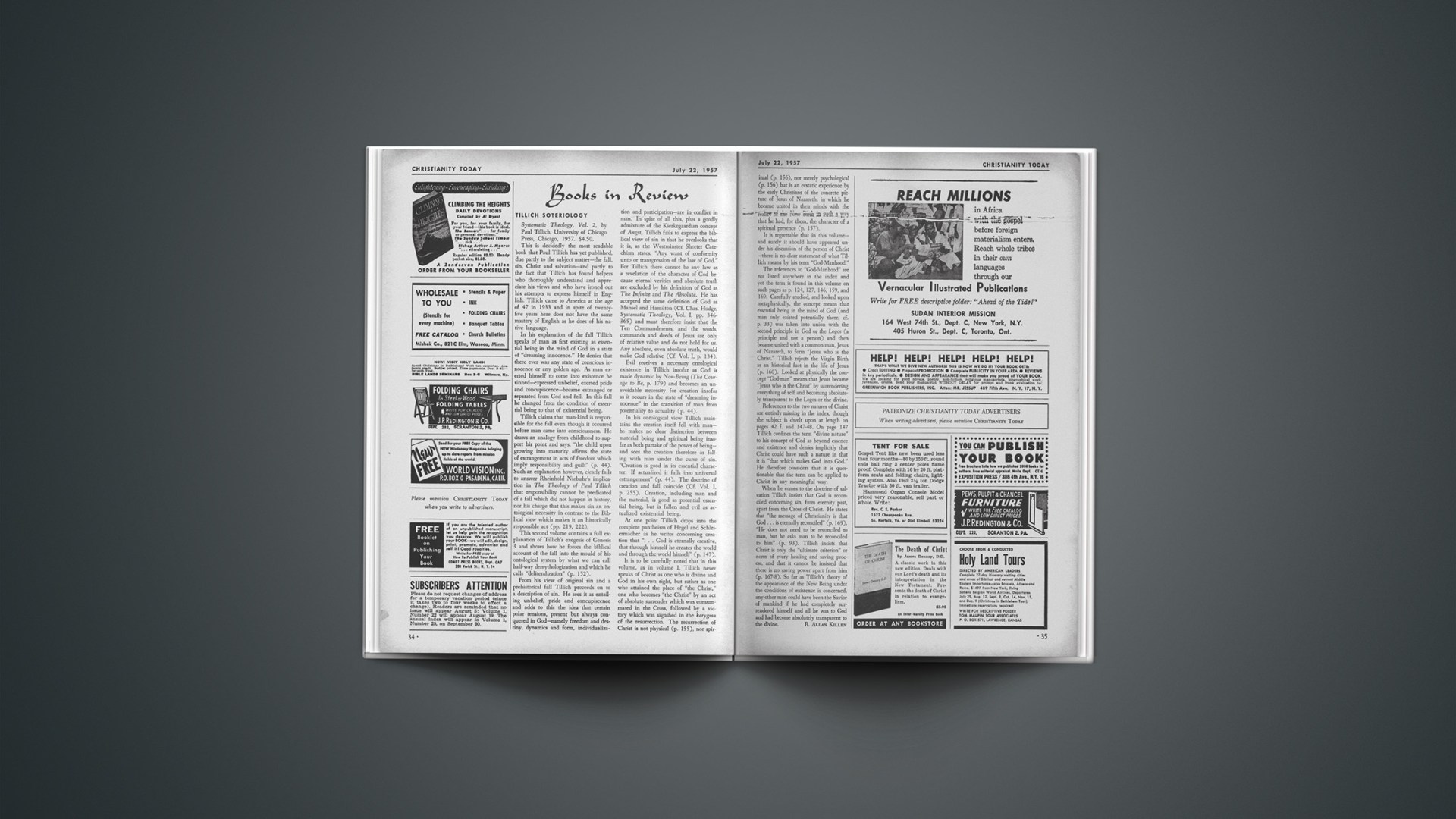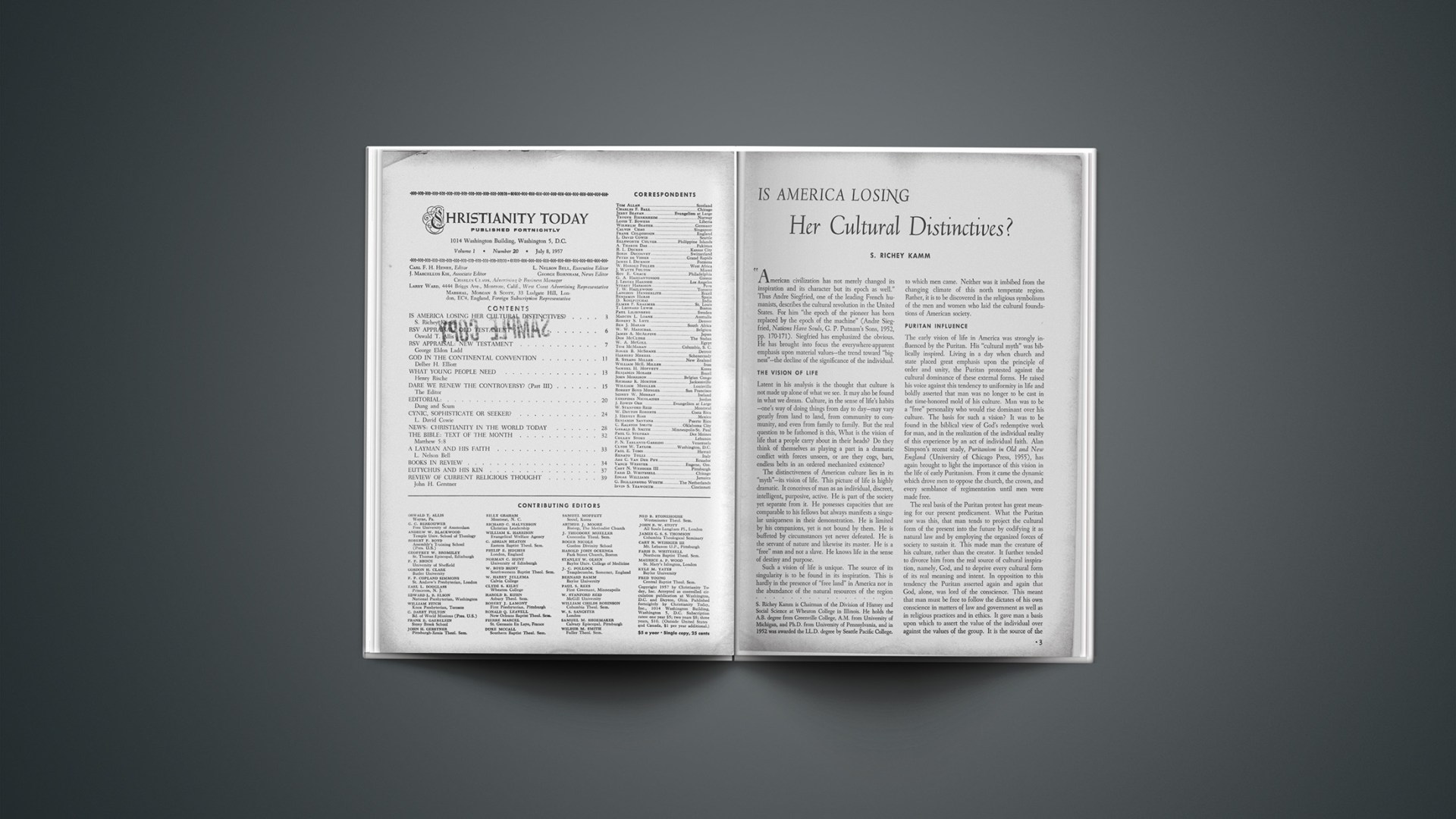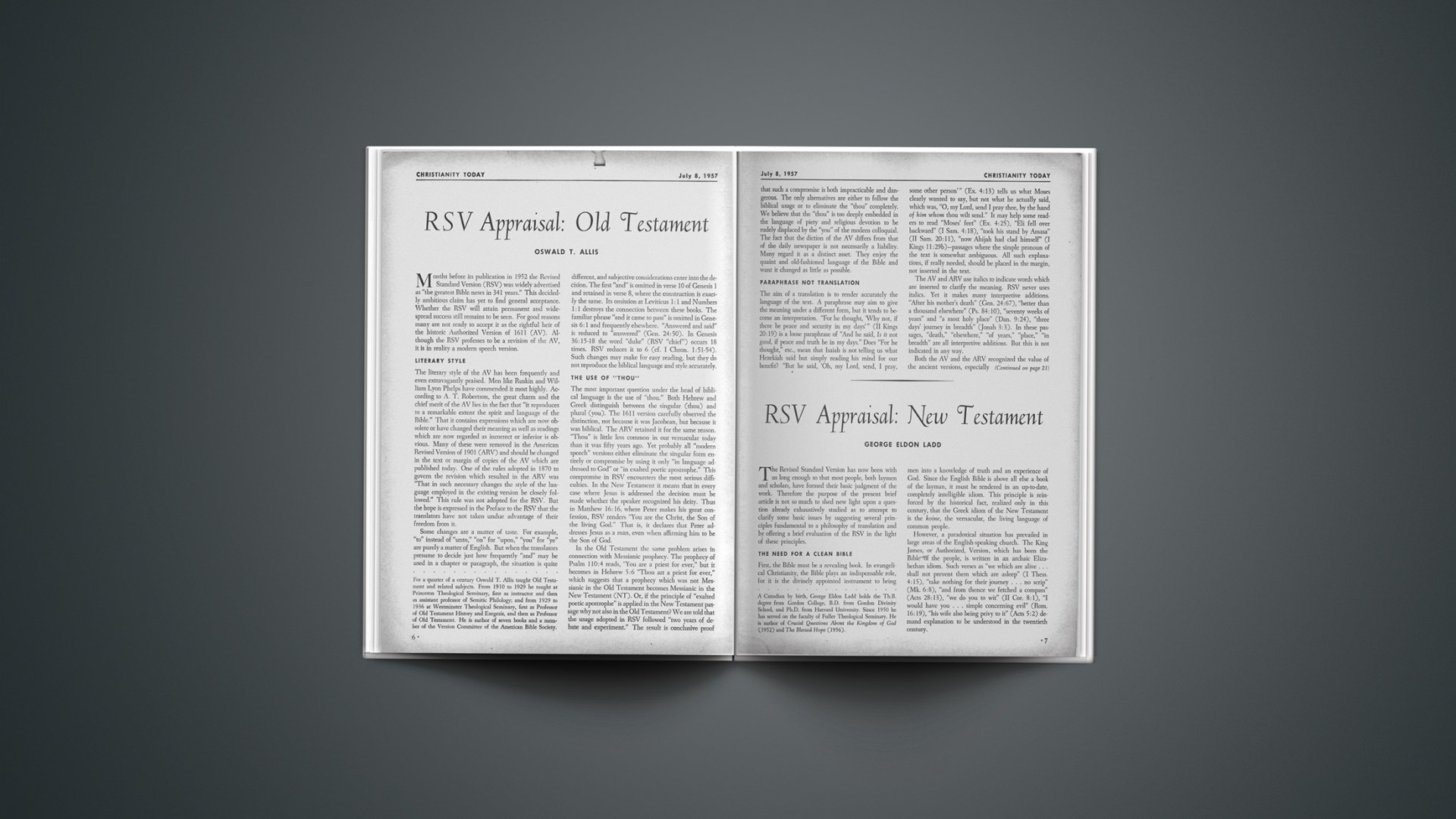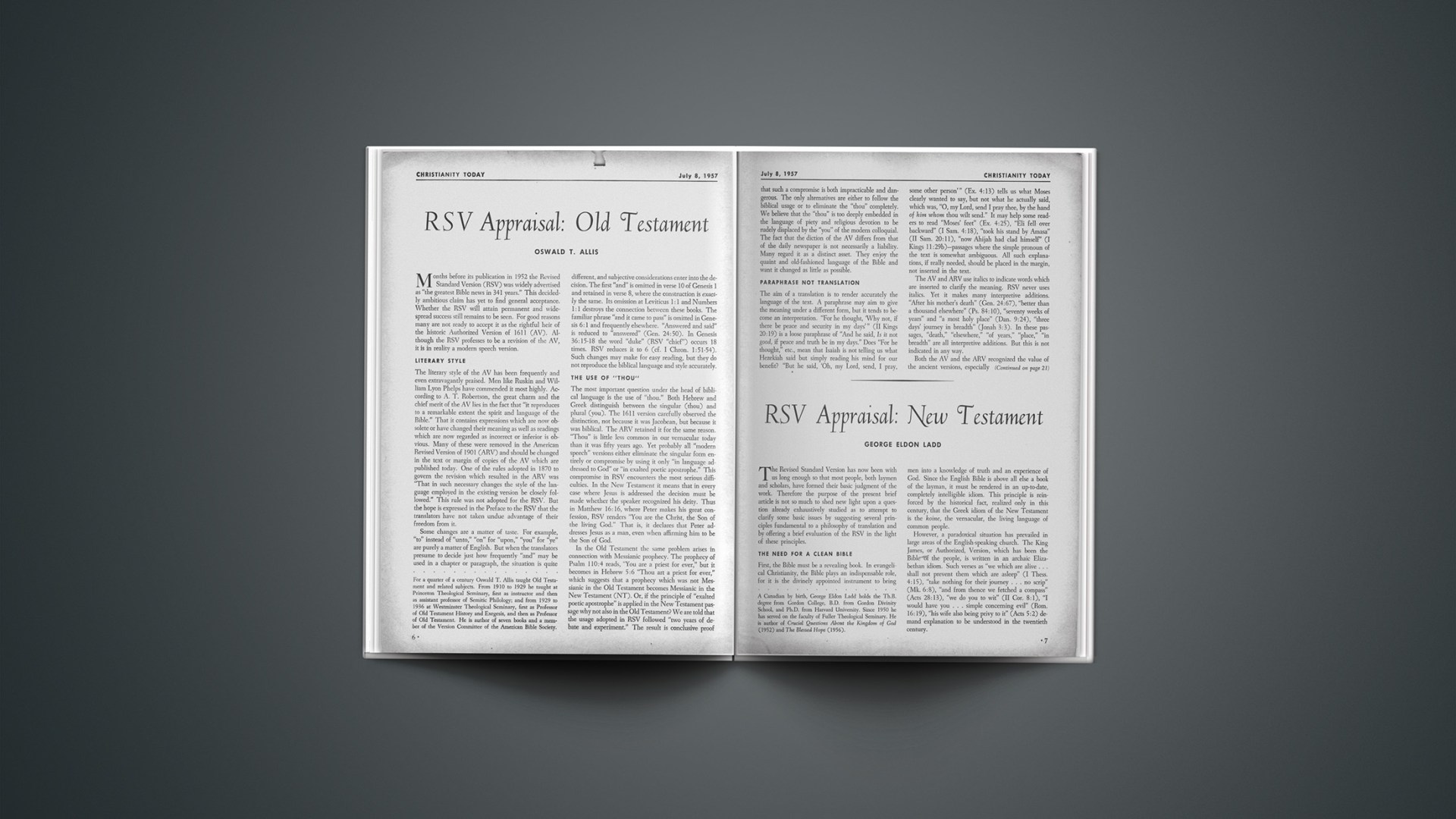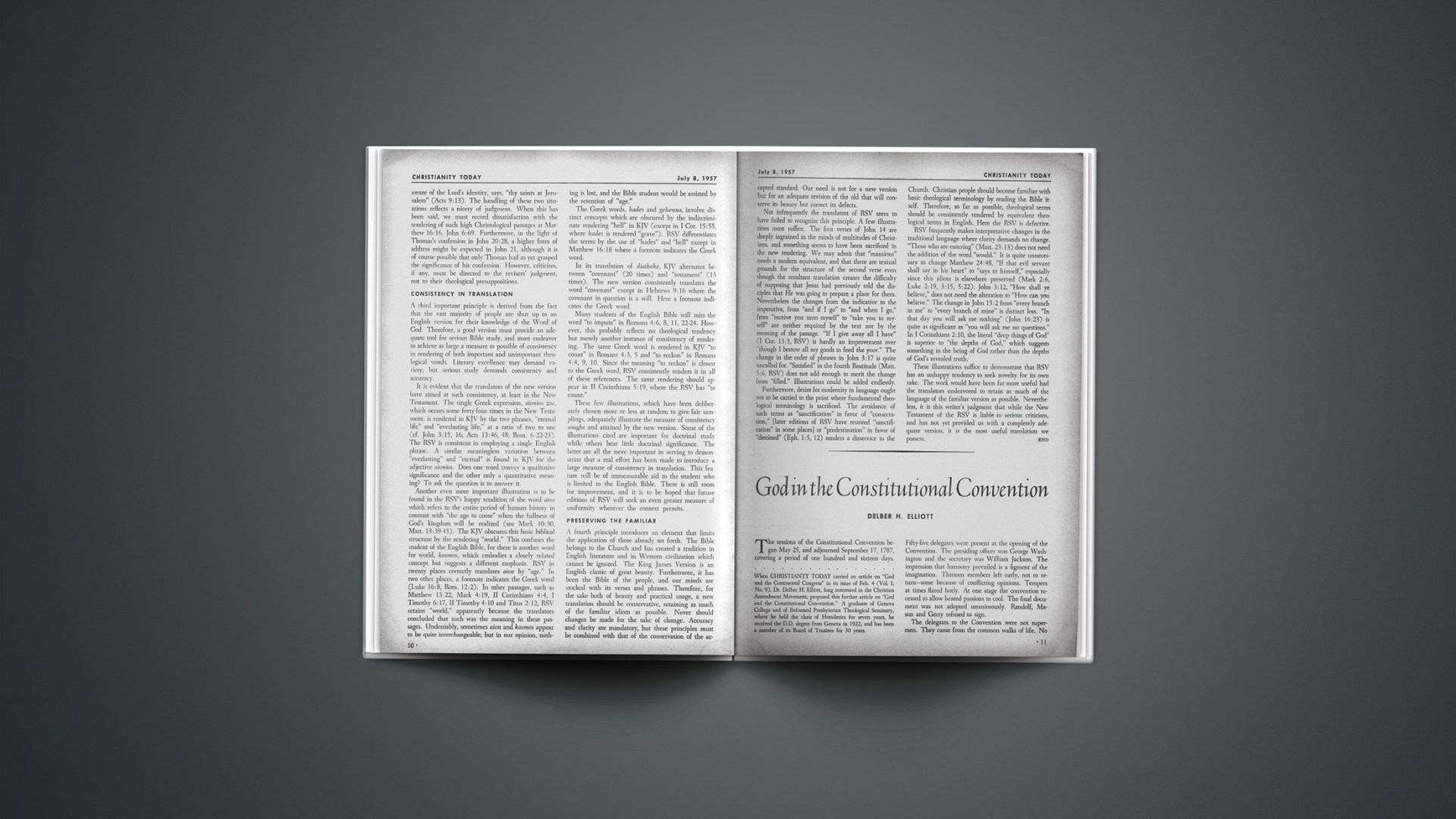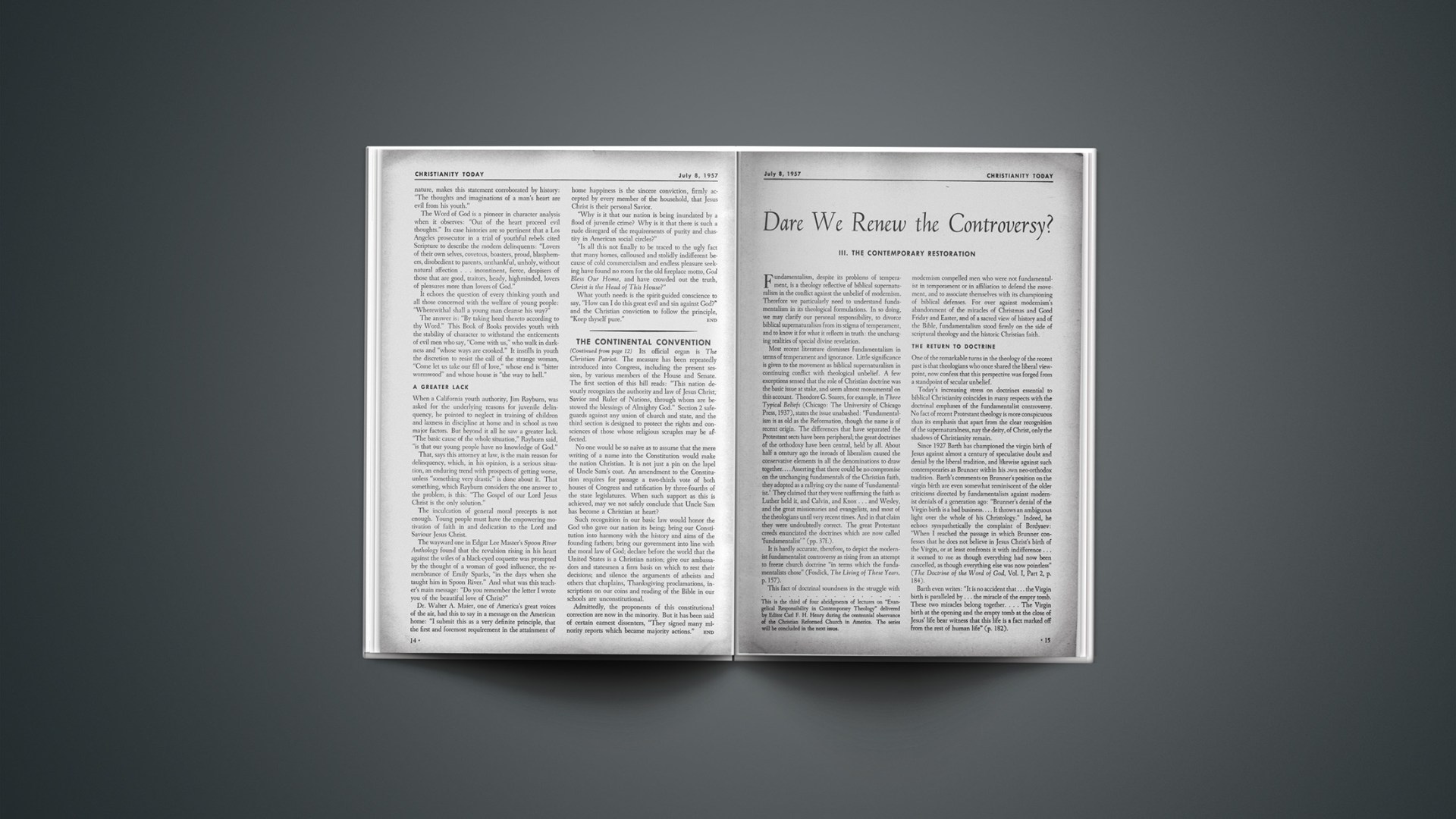St. Paul’s Second Epistle to the Corinthians may without exaggeration be described as one of the richest of all the writings of the New Testament. Its pervading theme of the complete sufficiency of God’s grace in the face of trials and afflictions of every kind is one that is peculiarly appropriate for our own times. And yet it is a strangely neglected epistle. The reason for this neglect is difficult to ascertain, unless it may be that the human mind has a subconscious and quite illogical tendency to rate what is known as a second epistle as being of only secondary importance. In point of fact, there would be some justification for speaking of I Corinthians as the second epistle (and II Corinthians as the third), since it is evident from 1 Corinthians 5:9 that St. Paul had written a still earlier letter to the Corinthians which is now lost. Be that as it may, II Corinthians is certainly not inferior to I Corinthians in the splendour of its perspectives of divine truth. Its “rediscovery” today could hardly fail to be an ennobling and fortifying experience for the church of Christ.
Structure Of Epistle
The opening salutation (in which St. Paul associates the name of Timothy with his own) shows that this epistle was written not only to the church at Corinth, but to all the Christians in the province of Achaia in Southern Greece. The epistle falls into three main sections: (1) chapters 1 to 7, in which the Apostle provides an explanation of his relations with the Corinthians, a defence of his own personal integrity in these relations and an appeal to them to reciprocate the confidence and the love which he entertains towards them; (2) chapters 8 and 9, in which he exhorts the Corinthians to give liberally for the relief of the poverty-stricken Christians at Jerusalem and makes arrangements for them to have their collection in readiness when he comes to receive it and to convey it to their fellow-believers in the mother-church; (3) chapters 10 to 13, in which St. Paul vindicates his apostolic authority with a view to silencing the slanders uttered against him by certain ill-disposed persons.
Wealth Of Contents
But to summarize the structure of the epistle in this manner is to fail to give any adequate idea of the wealth of its contents. Chapters 3 to 6, for example, set before us a succession of noble themes, memorably presented. There is, to begin with, the impressive comparison of the glory of the law ministered by Moses with the surpassing and abiding glory of the new covenant ministered by Christ (3:1–4:6). This leads to the reminder that the Christian has the treasure of the knowledge of God’s glory in the frail earthen vessel of the human frame, together with the assurance that, however much the outward man may suffer and decay, the inward man is renewed day by day and that the weight of affliction borne in this brief pilgrimage is immeasurably surpassed by the eternal weight of glory which is the Christian’s inheritance (4:7–18).
St. Paul then passes on to speak of the death of the body and the intermediate state. This present mortal body is like a temporary tent, which is dissolved at death. Even though to be absent from the body (as the result of death) means a period of “nakedness” and incompletion, yet it also means, for the Christian, to be at home with Christ. And when Christ comes again all Christians, whether still in the body or not, will be clothed upon with the permanent abode of the resurrection body. Man will not enter the heavenly state as a disembodied spirit but in the full splendour of his redeemed humanity; for Christ saves the whole man, body as well as soul (5:1–10). There follows one of the great classical passages concerning God’s soverign grace in reconciling man to himself through Christ’s atoning and substitutionary death. The passage concludes with what is perhaps the most perfect brief statement in the New Testament of the theology of our redemption, namely, that “God made Christ, who knew no sin, to be sin for us, that we might become the righteousness of God in him” (5:14–21).
6:4–10 is another memorable section, admired for its beauty by Augustine, Erasmus and many others, which describes the serene and transcendent spirit of the faithful follower of Christ in the midst of trials and afflictions of every kind—“as sorrowful, yet alway rejoicing; as poor, yet making many rich; as having nothing, and yet possessing all things”. Could there be a more sublime paradox than that of the new man in Christ? Mention may also be made in this connection of the Apostle’s enumeration in the eleventh chapter (verses 16–33) of some of the many severe hardships and persecutions he had suffered in the course of his missionary labours. He, if anybody, knew what it meant to be “always delivered unto death for Jesus’ sake, that the life also of Jesus might be made manifested in our mortal flesh” (4:11).
Theme
What is the theme which pervades the whole of this remarkable epistle? It is perfectly stated in the never-to-be-forgotten words of the glorified Lord to his servant: “My grace is sufficient for thee: for my power is made perfect in weakness”; and in the Apostle’s exultant response: “Most gladly therefore will I rather glory in my weaknesses, that the power of Christ may rest upon me; wherefore I take pleasure in weaknesses, in injuries, in necessities, in persecutions, in distresses, for Christ’s sake: for when I am weak, then am I strong” (12:9–10). Alas, how little do we know of this dynamic apostolic spirit today! Human weakness and divine power have not changed; but we have allowed the comforts and securities offered by twentieth-century civilization and the complacencies of denominational allegiance to bind us to this earth, with the result that we are at home here and now, and are puzzled to think (if we ever do think about it) how it will be possible for us to be at home with the Lord hereafter (cf. 5:8).
Unity
Something must be said about the unity of II Corinthians. Many scholars in modern times have propounded the view that one or more sections of the epistle as we now have it cannot have belonged to the original document, and must therefore, as the result of some later accident or mistake, have been inserted from elsewhere. The last four chapters especially have been said to be incompatible in tone and content with the earlier chapters, and the hypothesis has been advanced that they are a part of the “painful letter” to which the Apostle refers in 2:4 and 7:8. This “painful” or “severe” letter, it is supposed, must have been written after I Corinthians, since the latter is regarded, by those who advance this hypothesis, as unfitted for such a description. 2 Corinthians 10–13, then, would be a fragment from that letter which in some way not known to us became attached to our epistle. Various other passages have also been the subject of similar conjectures.
Such theories, however, are without the support of a single shred of external evidence. No early writer, no ancient manuscript and no breath of tradition betrays any indication that II Corinthians ever existed in a form other than that in which we now possess it. And, besides, it is difficult to see why our present I Corinthians should not be the “painful letter” mentioned in 2:4 and 7:8. Consider for a moment the extremely painful matters about which St. Paul writes in that epistle: serious divisions and factions in the church at Corinth, the pride with which its members had become “puffed up,” their condonation even of a case of incest in their midst, their willingness to institute legal proceedings against one another before unbelievers, their abuse of the Lord’s Supper, the grave disorderliness of their public worship and the denial by some in their midst even of Christ’s resurrection from the dead. Tertullian was not without some justification in saying that I Corinthians was written “not with ink, but with gall” (De Pudicitia XIV).
Then, too, it must be remembered that St. Paul was writing a letter, not composing a literary essay or a logical treatise. The epistolary form is essentially spontaneous and flexible. In a letter, especially from an apostle to a church which he had founded, there is nothing either surprising or inappropriate in changes of subject matter, of style or even of mood. There is room for doctrinal instruction, ethical admonition, praise and gratitude, reproof and censure. And it must not be forgotten that it was Paul, one of the great personalities of history, who was writing, or rather dictating, this letter—Paul who lived so devotedly and felt so deeply that it was nothing unusual for him to break off from a particular theme and to embark on a profound and enriching digression. Indeed, it may be asserted that perhaps the noblest part of this epistle is an extended “digression,” namely, from 2:14 to 7:4. In 2:13 he is recounting how he traveled anxiously from Troas to Macedonia, hoping to meet Titus there with news from Corinth; but this subject is interrupted—and thank God that it is!—by a thought concerning the manner in which God causes the believer to triumph in Christ through all adversities, and it leads on to a sequence of great and glorious themes which have been an inspiration to countless saints who have suffered for Christ’s sake during the succeeding centuries.
The account of his coming to Macedonia and meeting with Titus is resumed only at 7:5. These events took place, as far as we are able to ascertain from the evidence available, in the autumn of 57 A.D., and immediately upon receiving Titus’s report on the manner in which his earlier epistle had been received St. Paul wrote II Corinthians and sent it to Corinth by the hand of Titus and two other brethren (8:16–24), intending to follow them himself after an interval (9:4, 12:14, 13:1, cf. Acts 20:2). The Pauline authorship of II Corinthians is not open to serious dispute.
Tools For Exposition
Of the commentaries which have been written on II Corinthians we shall mention only five, all of which will be of great value to the student of Holy Scripture: the Homilies of John Chrysostom (fourth century), the commentary of John Calvin (sixteenth century), and, in more recent times, those of Charles Hodge (1835, but recently republished), James Denney (1894, Expositor’s Bible), and, on the Greek text, Alfred Plummer (1915, International Critical Commentary).
PHILIP EDGECUMBE HUGHES

